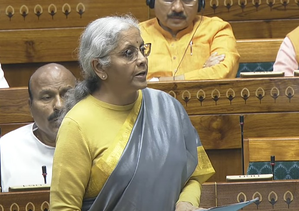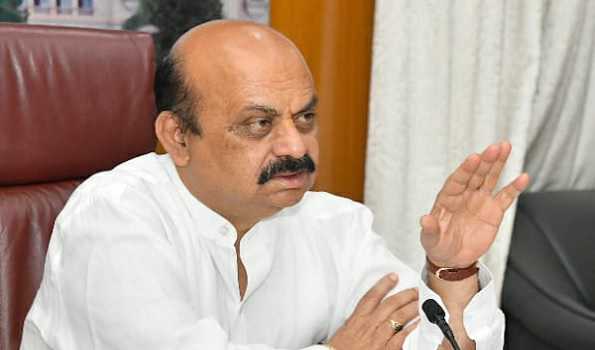
New Delhi, Feb 13: Finance Minister Nirmala Sitharaman introduced the new Income Tax Bill, 2025, in the Lok Sabha on Thursday as part of the tax reforms to streamline and simplify the provisions so that they are easier to understand and reduce the scope for legal disputes.
The legislation will replace the Income Tax Act, 1961, which has grown extensively due to numerous modifications carried out over six decades.
The Bill will be sent to the Select Committee of Parliament before it comes up for final approval in Parliament. The new law is expected to take effect on April 1, 2026.
The first part of the Budget Session of Parliament also came to an end on Thursday and the second part of the session will resume on March 10. The Budget Session is being held in two parts – from January 31 to February 13 and between March 10 and April 4.
The primary objective of the new Income Tax Bill is to simplify the tax laws, ensuring that they are more transparent, easier to interpret, and taxpayer-friendly. By replacing complex provisions with clearer provisions, it aims to reduce legal disputes and encourage voluntary tax compliance.
The bill may introduce lower penalties for certain offences, making the tax system more taxpayer-friendly.
The Income Tax Bill is being reduced to 622 pages and contains 536 clauses. It will replace the existing 64-year-old law that runs into 823 pages with 819 sections. The proposed bill seeks to simplify the language by introducing clearer terms, such as replacing ‘assessment year’ with ‘tax year’. It will eliminate various convoluted provisions and explanations to make it easier to understand and reduce the scope of legal disputes. Some archaic clauses are being dropped as part of the simplification process.
The bill will not change the existing tax slabs or review the tax rebate given. Instead, it aims to make the six-decade-old legislation reader-friendly
“This reform is a significant step towards modernising India’s tax framework, bringing greater clarity and efficiency. The bill promises a more streamlined, accessible tax system, making it easier for citizens and businesses to fulfil their obligations while fostering trust in the system,” says Rohinton Sidhwa, Partner, Deloitte India.
–IANS






